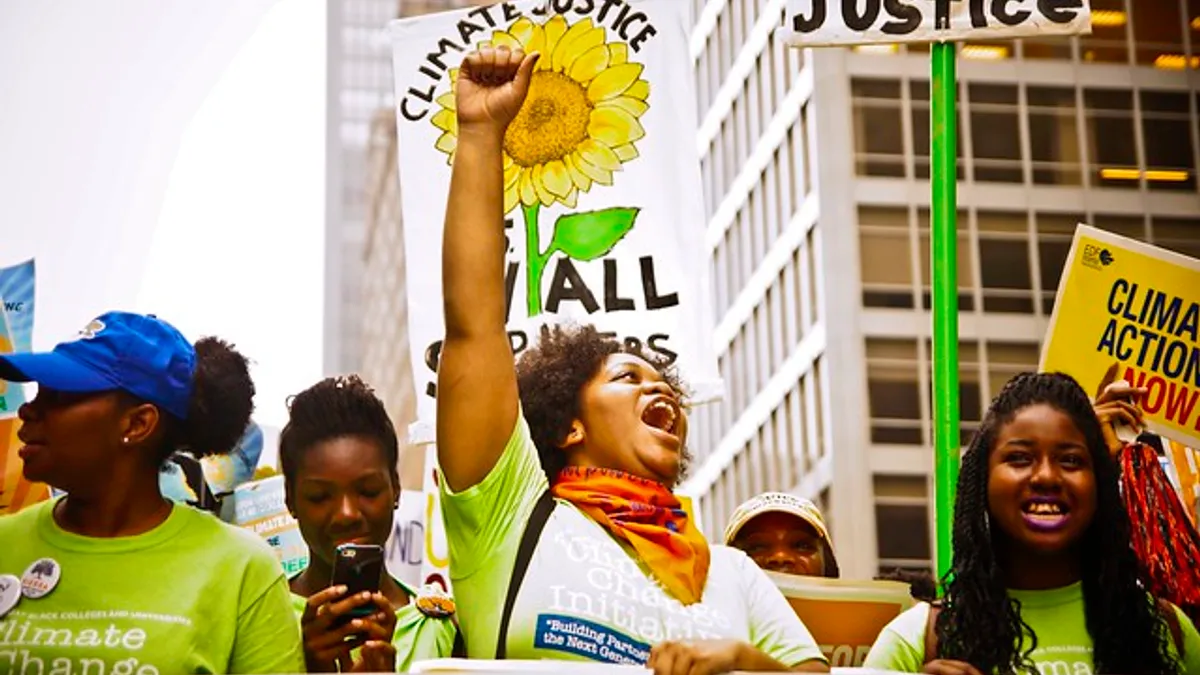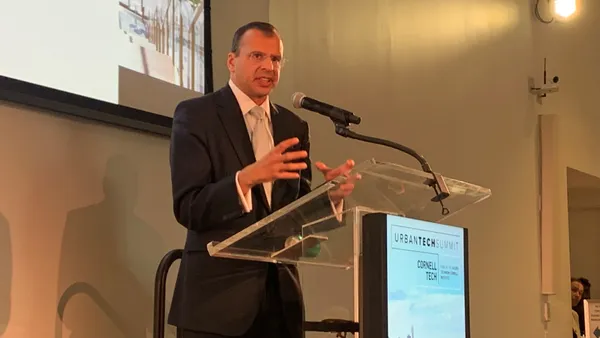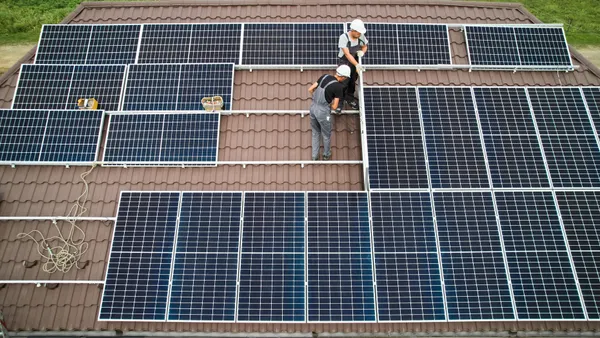Dive Brief:
- The Cities Climate Finance Leadership Alliance announced yesterday it added seven members and renewed its "commitment to deploying finance for city-level climate action at scale by 2030."
- The alliance, which brings together a broad coalition of public and private stakeholders, looks to fund climate and infrastructure projects worldwide. It received a new infusion of funding from two German government ministries: the Federal Ministry for Economic Cooperation and Development (BMZ) and the Federal Ministry for the Environment, Nature Conservation, and Nuclear Safety (BMU). The alliance also added the governmental analysis and advisory firm Climate Policy Initiative as its new Secretariat.
- Its seven new members are: the Climate Investment Funds, the C40 Cities Finance Facility, the Congolese Agency For Ecological Transition and Sustainable Development (ACTEED), the European Bank for Reconstruction and Development, the Global Infrastructure Facility, the Green Climate Fund and the Organisation for Economic Co-operation and Development (OECD).
Dive Insight:
The alliance warned that trillions of dollars will be needed for cities to build the resilient infrastructure necessary to address the effects of climate change. And while there is broad bipartisan agreement on the need for cities' infrastructure to be resilient, the issue of funding remains a hot topic as governments are strapped for cash and often unwilling to make a larger up-front investment.
In a statement, Maria Flachsbarth, parliamentary state secretary at BMZ, called on cities to "innovate faster, learn faster from our failures, coordinate better, divide our labor, and focus where we are best with each of our institutions." With the impacts of climate change being felt more greatly in cities around the world, it is imperative that groups like this help move the ball forward.
Coastal cities will feel those effects more than most, based on the findings of the latest United Nations' International Panel on Climate Change (IPCC) report released this week. That report warned sea level rise is accelerating beyond what had been previous projected, which could result in more extreme sea level events like flooding, cyclone winds and heavy rain.
New York City and Boston are among those cities that are investing heavily in resiliency in flood-prone areas, with the former announcing a $500 million plan for lower Manhattan while the latter has a plan to transform the city's 47-mile shoreline by adding 67 acres of green space, protecting infrastructure from higher sea levels.
Similarly, the National League of Cities (NLC) announced eight cities that would receive cash, technical assistance and professional development opportunities to help address their communities' resilience in dealing with climate change, while Honolulu is also making efforts to prevent sea level rise.
However, the IPCC report demonstrates that these investments may still not be enough to combat the worst impacts of climate change, which is where partnerships like the Cities Climate Finance Leadership Alliance comes in. With backing from organizations like C40, which mobilizes cities to think big about fighting climate change, and financial clout from the private and public sectors, it could be crucial in pushing cities' efforts into high gear.












